
Stevedore Scholar, Eric Hoffer
http://en.wikipedia.org/wiki/Eric_Hoffer
http://en.wikipedia.org/wiki/Eric_Hoffer
"It has often been said that power corrupts. But it is perhaps equally important to realize that weakness, too, corrupts. Power corrupts the few, while weakness corrupts the many. Hatred, malice, rudeness, intolerance, and suspicion are the faults of weakness. The resentment of the weak does not spring from any injustice done to them but from their sense of inadequacy and impotence." Eric Hoffer
"It is by its promise of a sense of power that evil... attracts the weak." Eric Hoffer
***
Eric Hoffer - Wikiquote
One of Hoffer's most remarkable essays is "Sribe, Writer and Rebel." I cannot find it online but lengthy excerpts are available on Hoffer's Wikiquote page.
***

***

***
Eric Hoffer quotes
Absolute faith corrupts as absolutely as absolute power.
People will commit the worst crimes against those who they believe to stand in the way of a utopian vision. Hoffer had the following to say about absolute faith.
The opposite of the religious fanatic is not the fanatical atheist but the gentle cynic who cares not whether there is a god or not.
There are similarities between absolute power and absolute faith: a demand for absolute obedience, a readiness to attempt the impossible, a bias for simple solutionsto cut the knot rather than unravel it, the viewing of compromise as surrender. Both absolute power and absolute faith are instruments of dehumanization. Hence, absolute faith corrupts as
absolutely as absolute power.
Facts are counterrevolutionary.
There are other observations by Hoffer that sound at first like cynicism but are in reality observations of human nature that are relentlessly candid.
It is easier to love humanity as a whole than to love one’s neighbor.
It is the awareness of unfulfilled desires which gives a nation the feeling that it has a mission and a destiny.
It is the malady of our age that the young are so busy teaching us that they have no time left to learn.
It is very common to criticise the desire to aquire, and by extension,capitalism. Hoffer does not run with the pack in his observations of consumerism and free enterprise.
It is often the failure who is the pioneer in new lands, new undertakings, and new forms of expression
It is the child in man that is the source of his uniqueness and creativeness, and the playground is the optimal milieu for the unfolding of his capacities and talents.
It still holds true that man is most uniquely human when he turns obstacles into opportunities.
Although he seems to take a cynical attitude towards religion and religious faith, his observations about religion and belief have a proverbial quality. I could not believe in any faith that would stumble over Hoffer’s observations.
Man is the only creature that strives to surpass himself, and yearns for the impossible.
Man was nature’s mistake she neglected to finish him and she has never ceased paying for her mistake.
Many of the insights of the saint stem from their experience as sinners.
The greatest pleasure in reading Eric Hoffer is when his observations of human nature strike with profound resonance.
One of the marks of a truly vigorous society is the ability to dispense with passion as a midwife of action – the ability to pass directly from thought to action.
Our frustration is greater when we have much and want more than when we have nothing and want some. We are less dissatisfied when we lack many things than when we seem to lack but one thing.
Our greatest pretenses are built up not to hide the evil and the ugly in us, but our emptiness. The hardest thing to hide is something that is not there.
Today, almost 30 years after his death in 1983, the wisdom of Eric Hoffer is still studied and appreciated.
I could not find the last two clips of the Hoffer interview. What is here, though incomplete, is better than nothing.


"The terrible thing about our time is precisely the ease with which theories can be put into practice. The more perfect, the more idealistic the theories, the more dreadful is their realization. We are at last beginning to rediscover what perhaps men knew better in very ancient times, in primitive times before utopias were thought of: that liberty is bound up with imperfection, and that limitations, imperfections, errors are not only unavoidable but also salutary. The best is not the ideal. Where what is theoretically best is imposed on everyone as the norm, then there is no longer any room even to be good. The best, imposed as a norm, becomes evil.”
"Conjectures of a Guilty Bystander,” by Trappist monk, Father Thomas Merton
More Merton Quotes




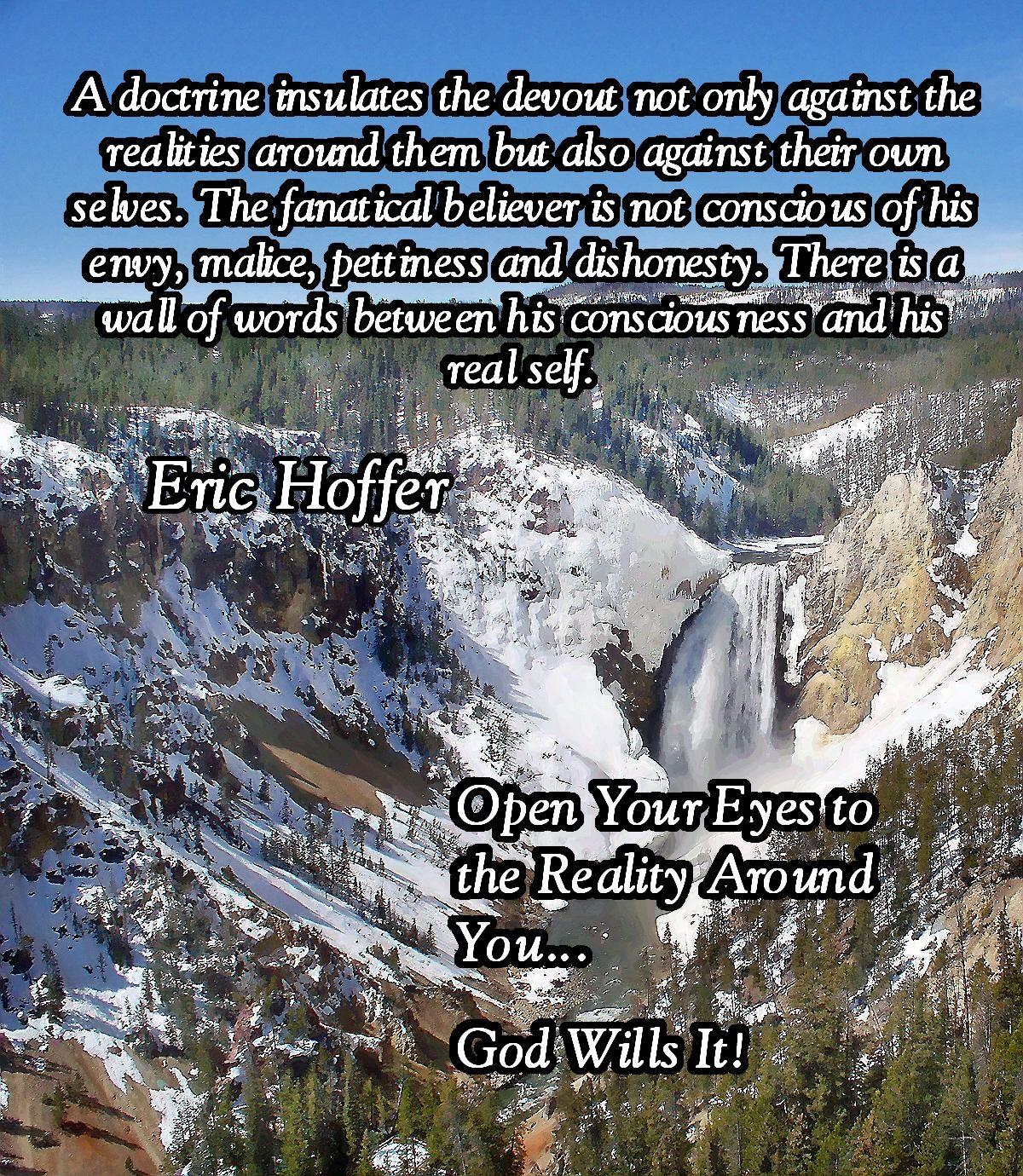





Alan: This principle is the foundation of capitalist consumerism.
It also marks the transformation of citizens into consumer units.



Alan: In the case of Christian fundamentalists, this would be "the threat of Hell."
First, they conceive God as a terrorist and then they seek to terrorize others,
promising that submission to the regime of terror is the only way to escape terror.
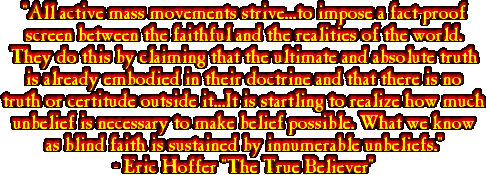



Alan: "More" is the enemy of "enough."
"Enough" is the cornerstone of happiness.
 |
| Add caption |


I mostly disagree with Hoffer's view of "The Jewish-Palestinian Question" but I also feel it deserves a voice.






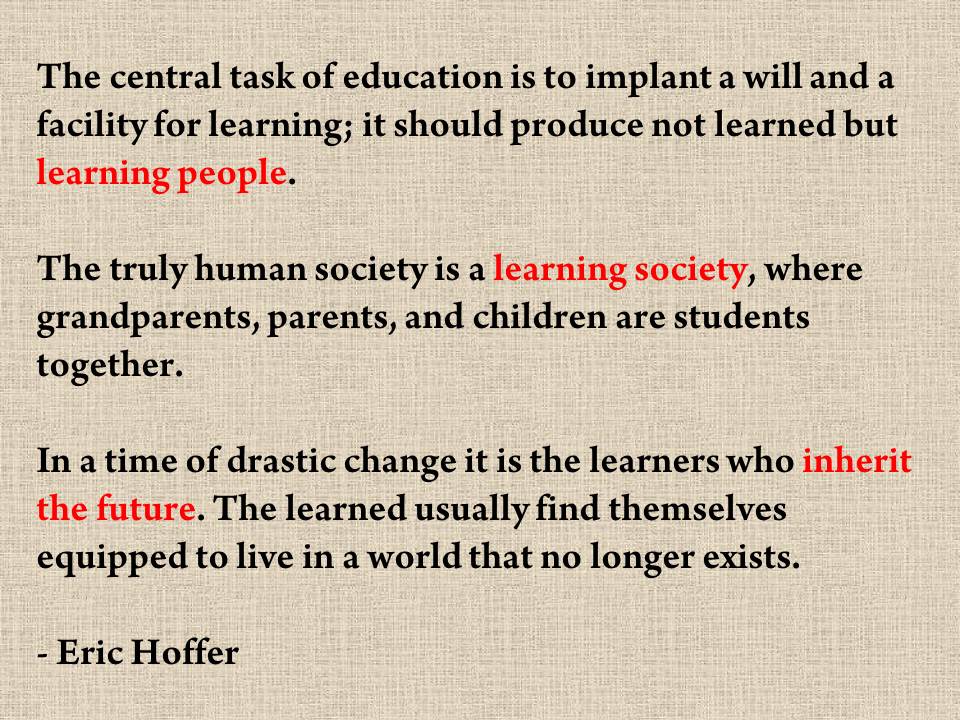



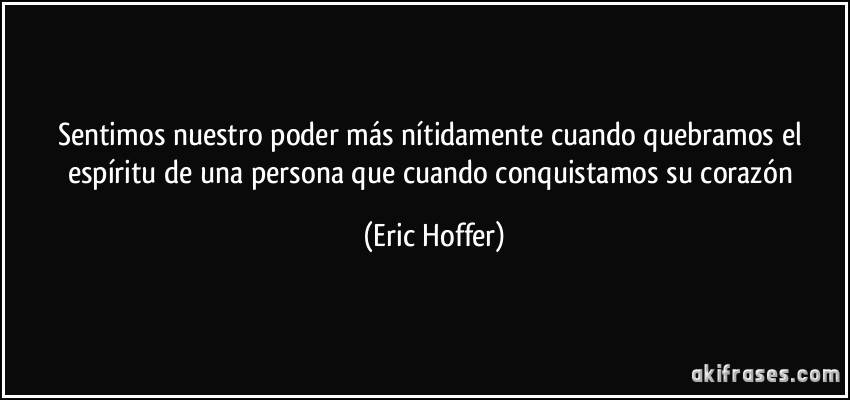
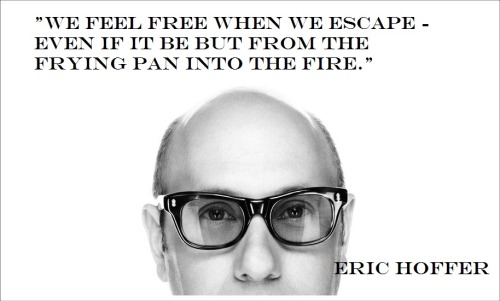

It is easy to overlook that "the familiar" derives from the word "family."





No comments:
Post a Comment